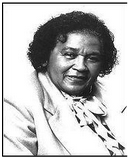
·ÖÎö ËþÏ£ÌᵺÊÇÄÏ̫ƽÑó·¨Êô²¨ÀûÄáÎ÷ÑÇȺµºÖÐ×î´óµÄµºÓ죮ËüÕ¼µØ1045ƽ·½¹«ÀӵÓÐ183600ÈË¿Ú£®ÄÇÀïµÄÌìÆø¼È²»Ì«ÈÈÒ²²»Ì«À䣬×ÜÊÇÎÂů³±Êª£®
ËþÏ£ÌᵺÈ˷dz£ÓѺúÍÈÈÇ飮ËûÃÇÓÃÒôÀÖ£¬Î赸ºÍÏÊ»¨»¶ÓÓοͣ¬ËþÏ£Ìᵺ»¨£¬ËüÖ»¿ÉÒÔÔÚËþÏ£ÌáÕÒµ½£¬ÓÃÀ´Ó½ÓµÖ´ïµÄÓοͺͻعé¼ÒÍ¥£¬¸¾Å®ºÍÄÐ×ÓÔÚ×ó¶ú´÷ÕâÖÖ»¨ºÜÁ÷ÐУ®
ÔÚËþÏ£Ìᣬ×ÜÊÇÓкܶàÊÂÇéÒª×ö£¬Òª¿´£®µºµÄÖÜΧÓÐÊý°Ù¸öÍêÃÀµÄÌøË®µØµã£®ÔÚË®ÖУ¬Äã¿ÉÒÔ¼ûµ½¸÷ÖÖÎåÑÕÁùÉ«µÄÓãºÍÐí¶à½Ð²»³öÃû×ÖµÄÆäËûµÄÉúÎιöèÓãÊÇÁíÒ»¸öÁîÈËÐ˷ܵÄÊÜ»¶ÓµÄ»î¶¯£®Äã¿ÉÒÔÕ¾ÔÚË®ÀﰲȫÉþµÄºóÃæ¿´öèÓã½ÌÁ·ÓÃÊÖιöèÓ㣬»ò´Ó´¬ÉÏÏíÊÜÕâÃÀÃîµÄ³¡¾°£®Èç¹ûÄãÏëÕÒÒ»¸öÓÎÓ¾µÄµØ·½£¬ÓÐÌ«ÑôÔ¡£¬»òÊÇÐÀÉÍÃÀÀöµÄÂäÈÕ£®½ðÐǵÆËþ£¬Ò»¸öºÚÉ«µÄɳ̲£¬ÊÇÒ»¸ö²»´íµÄÑ¡Ôñ£®
ÔÚÍíÉÏ£¬Äã¿ÉÒÔ³ÔËþÏ£ÌᵺʳƷ£¬ÔÚTahitian¹ã³¡ÓÐÐí¶àС²Í¹ÝÀïÃæÓÐÖйúʳƷºÍ·¨Ê½²ËëÈ£®¸÷ÖÖ¹ûÖÒ¬Ä̲¤ÂÜÖËæ´¦¿É¼û£®ÔÚËþÏ£ÌáһЩ¾Æµê½¨ÔÚË®ÉÏ£¬Í¸¹ý²£Á§µØ°å»ò¿§·È×À¿ÉÒÔ¿´¼ûÃÀÀöµÄÓãÔÚÏÂÃæÓÎÓ¾£®ËûÃÇÕæµÄÊÇÈÃÄã·ÅËɺÍÏû³ýÆ£À͵ĺܰôµÄµØ·½£®
ËþÏ£Ìᣬһ¸öÉñÆæµÄÄÜÈÃÄã×öÈκÎʵĵط½£¬Ôڵȴý×ÅÄ㣮
½â´ð 29£®C ϸ½ÚÀí½âÌ⣮¸ù¾Ý¶ÌÎĵÚÒ»¶Î×îºóÒ»¾ä»°The weather there is neither too hot nor too cold£®It's always warm and humid£®¿ÉÖª£¬ËþÎ÷ÌᵺµÄÌìÆø¼È²»ÈÈÒ²²»À䣬Ëü×ÜÊÇÎÂůʪÈ󣬹ÊÑ¡C£®
30£®A ϸ½ÚÀí½âÌ⣮¸ù¾Ý¶ÌÎĵڶþ¶ÎÖÐTahitian people are very friendly and welcoming£®They welcome visitors with music£¬dance and flowers£®¿ÉÖª£¬ËþÎ÷ÌᵺÉϵÄÈËÃǷdz£ÓѺã¬ËûÃÇÓÃÒôÀÖ£¬Î赸ºÍÏÊ»¨À´»¶ÓÀ´ËþÎ÷ÌᵺµÄÓοͣ®¹ÊÑ¡A£®
31£®B ϸ½ÚÀí½âÌ⣮¸ù¾Ý¶ÌÎĵÚÈý¶ÎµÚÒ»¾ä»°In Tahiti£¬there are always a lot of things to do and to see£®¿ÉÖª£¬ÔÚËþÎ÷ÌᵺÉÏ£¬ÓкܶàÊ¿É×ö£¬¿É¿´£®ÕâÊÇÕâÒ»¶ÎµÄÖÐÐľ䣮ÏÂÃæ½²ÊöµÄ¾ÍÊÇÔÚÕâ¸öµºÉÏ£¬Äã¿ÉÒÔ×öµÄºÜ¶àÊÂÇ飮¹ÊÑ¡B£®
32£®C ÍÆÀíÅжÏÌ⣮¸ù¾Ý¶ÌÎĵÚÈý¶ÎÖÐAround the island are hundreds of places perfect for diving£®¿ÉÖªA²»ÕýÈ·£»¸ù¾Ý¶ÌÎĵÚËĶÎÖÐÎÒÃÇ¿ÉÒÔÖªµÀ£¬ËþÎ÷ÌᵺÉÏÓкܶණÎ÷¿ÉÒÔ³Ô£¬¹ÊB²»¶Ô£»¸ù¾ÝPointe Venus Lighthouse£¬a black sand beach£¬¿ÉÖªD²»¶Ô£»¸ù¾ÝSome hotels in Tahiti are built above the waters£®¿ÉÖª£¬ÓÐһЩÂùÝÊÇÐÞ½¨ÔÚË®ÉÏÃæµÄ£¬ËùÒÔCÑ¡ÏîÊÇÕýÈ·µÄ£¬¹ÊÑ¡C£®
µãÆÀ Õâƪ¶ÌÎĽéÉܵÄÊÇÃÀÀöµÄËþÎ÷Ìᵺ£®ÌâÄ¿Éæ¼°¶à¸öϸ½ÚÀí½âÌ⣬ÔÚͨÏþÎÄÕ´óÒâµÄ»ù´¡ÉÏ£¬Òª½áºÏÌâĿעÒâÏà¹Øϸ½ÚµÄÀí½â£¬ÕÒ³ö¹Ø¼üÐԵľä×Ó£»¶ÔÓÚÍÆÀíÅжÏÌ⣬Ҫ´ÓÔÎÄÕÒµ½×ã¹»µÄÖ¤¾Ý£¬´Ó¶øÅжÏ˵·¨µÄÕýÎó£¬ÖðÒ»Åųý£¬Ñ¡³öÕýÈ·µÄ´ð°¸£®×ÜÌåÀ´Ëµ£¬ÕûƪÉæ¼°µÄÌâÄ¿Ïà¶Ô±È½Ï¼òµ¥£®


 ÃûУͨÐÐÖ¤ÓÐЧ×÷ҵϵÁдð°¸
ÃûУͨÐÐÖ¤ÓÐЧ×÷ҵϵÁдð°¸
| Ä꼶 | ¸ßÖÐ¿Î³Ì | Ä꼶 | ³õÖÐ¿Î³Ì |
| ¸ßÒ» | ¸ßÒ»Ãâ·Ñ¿Î³ÌÍƼö£¡ | ³õÒ» | ³õÒ»Ãâ·Ñ¿Î³ÌÍƼö£¡ |
| ¸ß¶þ | ¸ß¶þÃâ·Ñ¿Î³ÌÍƼö£¡ | ³õ¶þ | ³õ¶þÃâ·Ñ¿Î³ÌÍƼö£¡ |
| ¸ßÈý | ¸ßÈýÃâ·Ñ¿Î³ÌÍƼö£¡ | ³õÈý | ³õÈýÃâ·Ñ¿Î³ÌÍƼö£¡ |
¿ÆÄ¿£º³õÖÐÓ¢Óï À´Ô´£º ÌâÐÍ£ºÑ¡ÔñÌâ
| A£® | tastes | B£® | looks | C£® | feels | D£® | sounds |
²é¿´´ð°¸ºÍ½âÎö>>
¿ÆÄ¿£º³õÖÐÓ¢Óï À´Ô´£º ÌâÐÍ£ºÑ¡ÔñÌâ
| A£® | look up | B£® | set up | C£® | put up | D£® | fix up |
²é¿´´ð°¸ºÍ½âÎö>>
¿ÆÄ¿£º³õÖÐÓ¢Óï À´Ô´£º ÌâÐÍ£ºÑ¡ÔñÌâ
| A£® | mustn't | B£® | may not | C£® | can't | D£® | needn't |
²é¿´´ð°¸ºÍ½âÎö>>
¿ÆÄ¿£º³õÖÐÓ¢Óï À´Ô´£º ÌâÐÍ£ºÑ¡ÔñÌâ
| A£® | completely | B£® | never | C£® | hardly | D£® | partly |
²é¿´´ð°¸ºÍ½âÎö>>
¿ÆÄ¿£º³õÖÐÓ¢Óï À´Ô´£º ÌâÐÍ£ºÑ¡ÔñÌâ
| A£® | Good luck! | B£® | Congratulations! | ||
| C£® | What to do£¿ | D£® | Why not£¿ |
²é¿´´ð°¸ºÍ½âÎö>>
¿ÆÄ¿£º³õÖÐÓ¢Óï À´Ô´£º ÌâÐÍ£ºÑ¡ÔñÌâ
| A£® | What a | B£® | How | C£® | .How a | D£® | What |
²é¿´´ð°¸ºÍ½âÎö>>
¿ÆÄ¿£º³õÖÐÓ¢Óï À´Ô´£º ÌâÐÍ£ºÔĶÁÀí½â
²é¿´´ð°¸ºÍ½âÎö>>
¿ÆÄ¿£º³õÖÐÓ¢Óï À´Ô´£º ÌâÐÍ£ºÔĶÁÀí½â
 Mayme Clayton collected books£¬magazines and letters written by African Americans£®Her son£¬Avery Clayton£¬thought her collection was important£®Unlike most books£¬these were rare and hard to find£®They were written by writers who helped shape African American culture£®One book in the collection was written by Phillis Wheatley£®Wheatley was a slave who wrote poetry£®She was the first African American to publish £¨³ö°æ£© a book£®Wheatley herself signed £¨Ç©Ãû£© the book in the Claytons'collection£®No one else owns a copy signed by Phillis Wheatley£®
Mayme Clayton collected books£¬magazines and letters written by African Americans£®Her son£¬Avery Clayton£¬thought her collection was important£®Unlike most books£¬these were rare and hard to find£®They were written by writers who helped shape African American culture£®One book in the collection was written by Phillis Wheatley£®Wheatley was a slave who wrote poetry£®She was the first African American to publish £¨³ö°æ£© a book£®Wheatley herself signed £¨Ç©Ãû£© the book in the Claytons'collection£®No one else owns a copy signed by Phillis Wheatley£®| Mayme Clayton and Her Collection | |
| Personal information | ¡ñShe liked£¨56£©collecting books£¬magazines and letters written by African Americans£® ¡ñShe£¨57£©died when she was 83years old£® |
| Her collection | ¡ñCompared with other books£¬the books she collected couldn't be found£¨58£©easily£® ¡ñThe only copy written and£¨59£©signed by Phillis Wheatley was in her collection£® ¡ñShe had a large collection£¬£¨60£©including books£¬paper£¬photographs and other things by black leaders and artists£® ¡ñHer collections is of great£¨61£©importance to African American history and culture£® |
| Her£¨62£©son'sdream | ¡ñA£¨63£©museum for the treasure would be created£® ¡ñHe hopes to£¨64£©share the culture riches collected by his mother with more people£¬especially£¨65£©kids |
²é¿´´ð°¸ºÍ½âÎö>>
¹ú¼ÊѧУÓÅÑ¡ - Á·Ï°²áÁбí - ÊÔÌâÁбí
ºþ±±Ê¡»¥ÁªÍøÎ¥·¨ºÍ²»Á¼ÐÅÏ¢¾Ù±¨Æ½Ì¨ | ÍøÉÏÓк¦ÐÅÏ¢¾Ù±¨×¨Çø | µçÐÅթƾٱ¨×¨Çø | ÉæÀúÊ·ÐéÎÞÖ÷ÒåÓк¦ÐÅÏ¢¾Ù±¨×¨Çø | ÉæÆóÇÖȨ¾Ù±¨×¨Çø
Î¥·¨ºÍ²»Á¼ÐÅÏ¢¾Ù±¨µç»°£º027-86699610 ¾Ù±¨ÓÊÏ䣺58377363@163.com